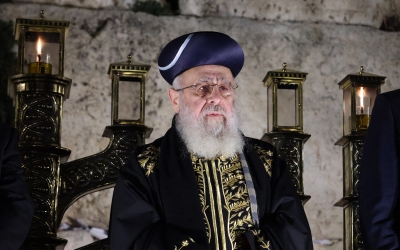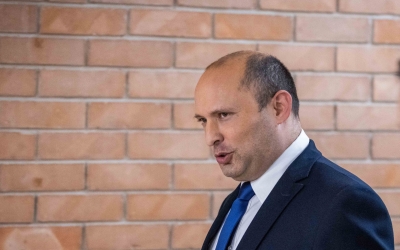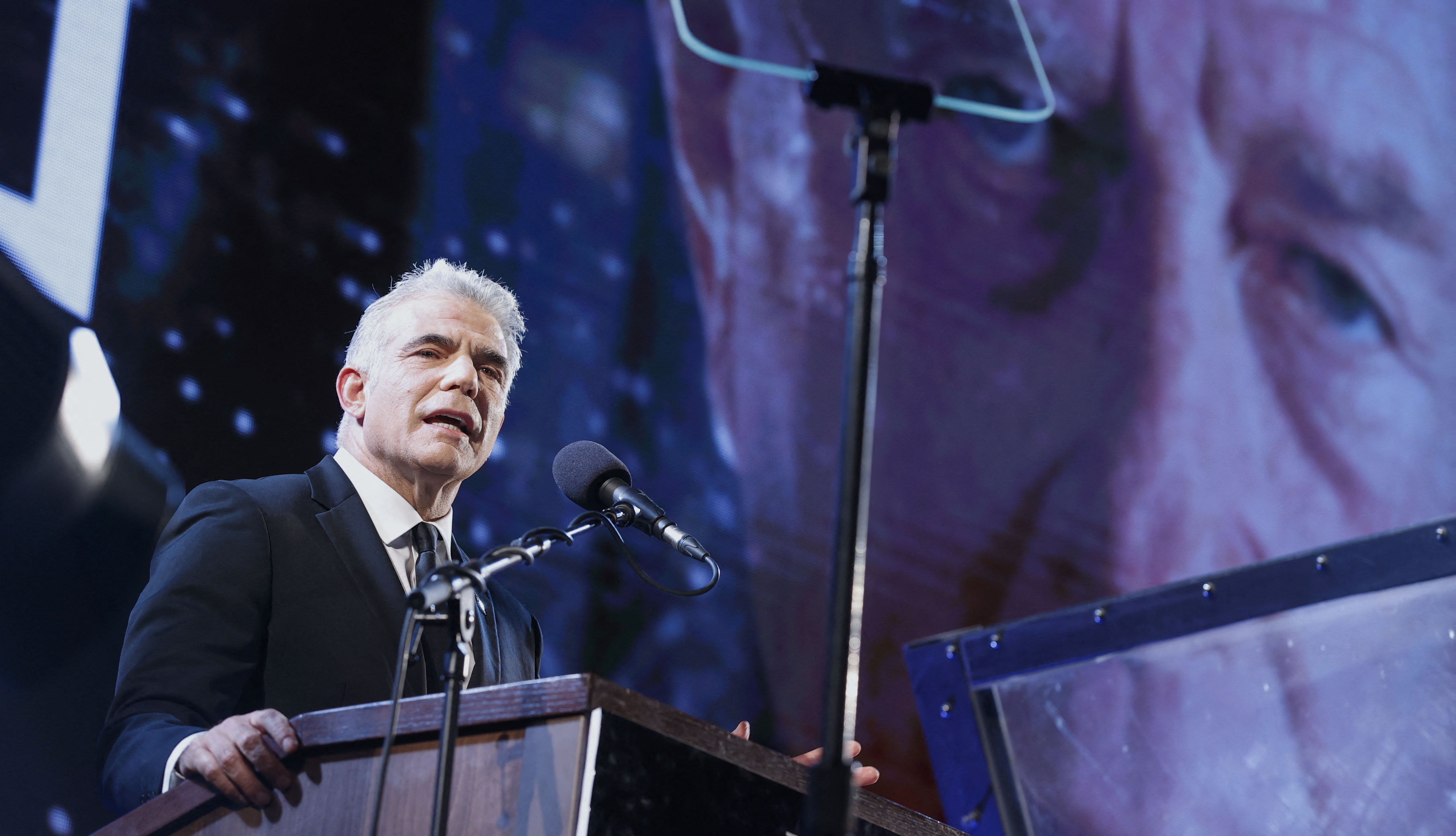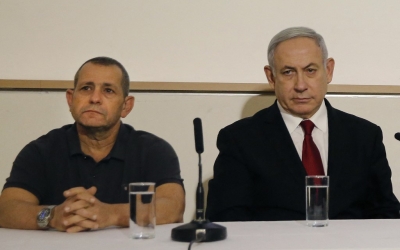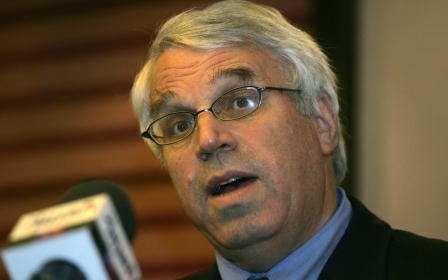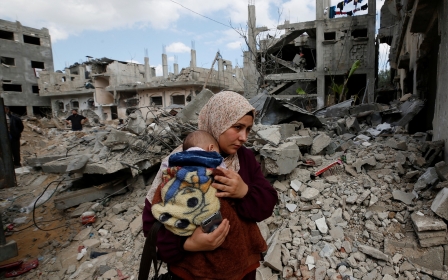Israel on precipice of disaster as Netanyahu's supporters fan flames of hatred
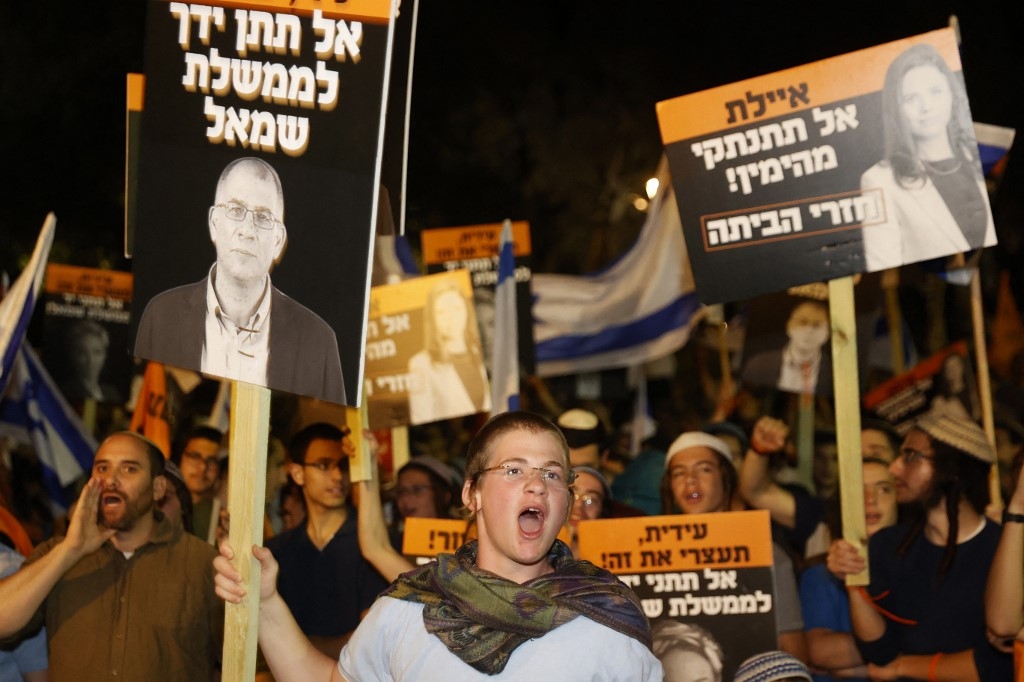
With his chances of staying in power rapidly diminishing, on Sunday Benjamin Netanyahu decided to get biblical.
The opponents of Moses, he reminded Israelis, were swallowed up alive by the earth as punishment for attempting to overthrow the prophet and block God's message to the people.
It was a frightening allusion for those seeking to replace the prime minister after 12 years in office and came at a time when political tension has reached a new peak, with Israeli security officials openly discussing the prospect of assassinations.
Netanyahu, whose supporters call King Bibi and portray as Israel’s modern Moses, is running out of time. He has until Sunday to stop the “government of change” led by Naftali Bennett and Yair Lapid from being voted into office.
That government, if it passes the vote on the weekend in parliament, will rule by the slightest of margins. It is a bizarre concoction of parties spanning left and right, secular and Islamist, and only just reaches the 61-seat threshold needed to govern.
With just days to go until that vote, Netanyahu and his supporters are ramping up the pressure on the incoming coalition, hoping to crack it before it is even sworn in. His supporters' fanaticism raises the prospect of leaving a scorched earth even if he's booted from office.
Within a week, the prime minister has cited the Torah twice to talk about God’s wrath, the betrayal of prophets, and the biblical spies who weakened people’s spirit.
Though he referenced ancient tales, Netanyahu has a clear message that his modern rivals are “traitors” who betrayed the “people of Israel”, just as in the Torah.
He called Bennett a “habitual liar,” the March election as the “biggest election fraud in the history of the country”, and lambasted the so-called “deep state” in Israel for pushing to form a “dangerous left-wing government” backed by “terror supporters”.
Bennett has appealed to Netanyahu “to let go and allow Israel to move forward”, while Israel’s internal intelligence agency, Shin Bet, issued an unprecedented warning of widespread incitement on social media that could lead to political assassination.
The incitement, violent statements, relentless protests against the yet-to-be-sworn in government, social media posts and the heated language of Netanyahu's political camp have all been compared to the days prior to 4 November 1995 when Israeli Prime Minister Yitzhak Rabin was assassinated in Tel Aviv.
Right versus right
This time, things are different from 1995, however.
Domestic political tensions in Israel are not between right and left, but rather a schism within the right-wing camp. This division has been growing across the four elections held since April 2019, stoked by Israel's leaders' failure to form a functional government.
Though Bibists are attacking Bennett and his Yamina party MPs, they all believe in the same causes: settlement building and the annexation of the West Bank, undermining the judiciary, and Jewish supremacy over Palestinian citizens of Israel. Yet they now feel galaxies apart.
“The incitement is very, very aggressive,” veteran Israeli analyst Meron Rapoport told Middle East Eye. “But what is interesting is that this discourse of polarisation has entered the right camp itself, and it is not just right and left, as we are used to.”
Bennett, a high-tech entrepreneur and a right-wing hawk who is opposed to a Palestinian state and calls for annexation, entered politics in 2006 through Netanyahu's office, serving as his chief of staff until 2008. Yet, this soured relationship seems to intensify the polarisation and language of incitement in Israel, rather than cool it.
“Because they hail from the same right-wing camp and were close to each other, the anger and sense of betrayal are even stronger and the incitement is very acute," Rapaport said. "Netanyahu thinks that violence is his only way to maintain power, calling Bennet a traitor, and with his supporters threatening to kill Knesset members, all this polarisation will remain within the right.”
Netanyahu’s son, Yair, had his Instagram and Twitter temporarily shut down after he published the home address of Yamina MP Nir Orbach, hoping protesters would flock to the building and pressure him into abandoning Bennett's government.
Bezalel Smotrich of Religious Zionism, a far-right party calling for a homogenous Jewish state, has also piled in on Orbach, accusing him of siding with a “left-wing government with terrorist supporters”, referring to coalition partner Raam, which represents Palestinian citizens of Israel.
Smotrich also baselessly accused Orbach of planning to disengage settlers from the illegal settlements in the West Bank.
'Motivation is power'
These statements have not gone unnoticed by Israel's security establishment.
On Sunday, the Shin Bet made the unusual decision of assigning security guards to Orbach and Idit Silman, another Yamina MP. Last week, it also provided protection to Bennett, and Yamina’s number two Ayelet Shaked, as death threats intensified.
"We have recently identified a rise in increasingly extreme violence and inciteful discourse, particularly on social networks," Shin Bet head Nadav Argaman said.
'The violent language today is characteristic of authoritarian regimes'
- Eyal Chowers, political lecturer
"This discourse may be interpreted among certain groups or individuals as one that permits violent and illegal activity which may even cause physical harm."
Eyal Chowers, a political theory lecturer at Tel Aviv University and author of The Political Philosophy of Zionism, says politics in Israel now boils down to one question: are you with Netanyahu or against him?
“This is the question now and not the issue of peace, settlements, or giving up territory [to the Palestinians]... These issues are not relevant anymore. Anyone who’s competing against Netanyahu is presented as an enemy and illegitimate,” Chowers told MEE.
In 1995, Rabin was the sole target of right-wing wrath when he signed the Oslo Accords with the Palestinian Liberation Organisation (PLO), ushering a new, and short-lived, era of hope that peace could be secured.
Likud's Ariel Sharon told media during an anti-Oslo protest in October 1995, days before Rabin was killed by an ultra-nationalist, that the prime minister was “a weak man, a man that gave up, not only the basic element of Zionism, a man that made the most terrible concessions and gave up to a terrorist organisation”. Netanyahu also said disparaging remarks against Rabin and refused to condemn those threatening the prime minister, addressing a crowd hours before the murder.
Though Israelis compare these times to the days prior to Rabin's murder, Chowers says today physical harm and incitement could be more widespread, reaching lawyers, journalists, judges and MPs.
“The violent language today is characteristic of authoritarian regimes. The first characteric is delegitimising anyone who has a different ideology and turning political opponents into suspects who have a dark motivation and don’t care for the people. This could be a politician, a journalist or even a judge,” Chowers says.
“The second is that one party speaks for the people. They declare themselves as the authentic representatives of the people and delegitimise others.
"The Likud party and Netanyahu in particular see him as the only person who really voices the will, the interest and values of the people of Israel, and that's the very essence of authoritarian use of language. The main motivation is power and whoever stands in its way is someone to attack.”
Religious support
Far-right MPs aren't the only ones dangerously making noise on Netanyahu's behalf.
Top ultra-Orthodox rabbis, seen as spiritual leaders for right-wing parties, have called on their followers to “try and do everything so that the [Bennet-Lapid] government does not materialise”.
"This government runs completely counter to the will of the people as definitively expressed in the last election,” the rabbis wrote in a statement on Saturday.
"There is no doubt that security matters that concern the core of our existence will also be harmed by this government, as it relies on supporters of terrorism and ministers who call on the International Court of Justice in The Hague to investigate IDF commanders for war crimes," they said, referring to Raam and Meretz party leader Nitzan Horowitz, who has supported investigations of the military.
'Netanyahu broke everything that was considered state-owned, such as the justice system and the police. This means complete chaos in all systems'
- Orly Noy, journalist
Orly Noy, an Israel journalist and political activist, notes Rabin's murder came with similar messages of support and "kosherness" by figures in the religious establishment.
“Bennett now has to hire bodyguards to protect himself from the followers of rabbis that he used to receive blessings from,” Noy tells MEE.
“It should be remembered that political violence has exclusively been on the right side of the political map. Violence has been nurtured and developed for years by the right, which has a murderous history that ended in several political assassinations, and now we are seeing its fruits.”
For Netanyahu and his camp, the incitement is to be blamed on Bennett. Shortly after the Shin Bet issued its warning, Smotrich said he was against violence.
"We are also against the political violence perpetrated by Bennett,” he said, accusing the Yamina leader of breaking his promises and stealing the election.
Netanyahu similarly said he "condemned violence from every side, even as others are silent as incitement rages against us”.
For Israeli analysts, this approach is typical of Netanyahu’s era.
“Netanyahu broke everything that was considered state-owned, such as the justice system and the police. This means complete chaos in all systems,” Noy says.
According to Rapoport, Israel could end up as a “failed state” if Netanyahu manages to cling to power.
“Half of the Israelis who voted for the government of change will think that Netanyahu's rule is illegitimate, bringing them close to how the Palestinians see the regime in Israel, which is becoming weaker and eaten away from within," Rapoport says.
“Israel could approach disintegration, and we are living in a dramatic moment.”
This article is available in French on Middle East Eye French edition.
Middle East Eye propose une couverture et une analyse indépendantes et incomparables du Moyen-Orient, de l’Afrique du Nord et d’autres régions du monde. Pour en savoir plus sur la reprise de ce contenu et les frais qui s’appliquent, veuillez remplir ce formulaire [en anglais]. Pour en savoir plus sur MEE, cliquez ici [en anglais].


